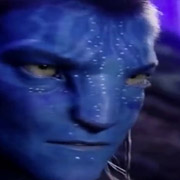- Ccs
- Feb 25, 2011
-


|
The poem I know best is TS Eliot's Prufrock, since a professor in college was very into New Criticism and liked to say how all the modern readings of Prufrock were wrong.
I have his analysis saved for posterity: I agree with his interpretation, but I also think he reads like a parody of old professors.
quote:
I will give some examples of the howlers below, but I cannot resist starting with the skilled Harvard-educated commentator's analysis of the ending of the poem, and in particular Prufrock's famous question to himself: "Do I dare to eat a peach?"
At this point in the poem, you may recall, Prufrock has faced the fact that he is never going to declare his passion to his lady-love. He imagines himself as an old man, walking along the beach, frail and dried up and never having really experienced life before descending into the grave.
Part of the way he imagines himself as being old has to do with the loosening of his teeth. In Prufrock's time, before there was modern dentistry, most people lost some or most of their teeth as they got older. Like stiffness of the limbs or shortening of sight, it was thought to be one of the inevitable consequences of aging.
Even older people who didn't lose their teeth almost invariably had some loosening of their teeth in the sockets—like when you were a kid losing your first set of teeth and felt them going wobbly before you actually lost them.
That's what Prufrock is imagining. The reason he imagines a peach as something he might not "dare" to eat when old is that peaches contain pits—if your teeth are loose, and if you bite into a peach thoughtlessly or unwarily, biting down on the pit of the peach can cost you a tooth.
Here we have, in a word, the meaning of Prufrock's "Do I dare to eat a peach?"
But that is not what the skilled Harvard-educated commentator makes of the line.
Far from it.
What the skilled Harvard-educated commentator thinks the peach is about is "female genitalia."
I am not making this up. Here's what he says: "The peach, through shape and texture, has long been a symbol for female genitalia." He then helpfully adds that "Prufrock's anxiety about eating a peach has much to do with his feelings of sexual inadequacy."
Meanwhile, far from Harvard, at humble Georgetown College in Kentucky, close reading lives on. Another of my students alerted me to a splendid page on Donne's A Valediction: Forbidding Mourning, another poem we read in English 219, that was put up by Professor Rosemary Allen for her students.
Professor Allen got her Ph.D from Vanderbilt, which is where great literary critics like Cleanth Brooks and Randall Jarrell went to school, so it is perhaps not surprising that she knows how to read Donne. Perhaps Harvard could work out an exchange program where it sent its English majors down to Vanderbilt for a semester, to learn how to read poems, and then they could come back up to Harvard to learn about peaches and female genitalia.
Pretty good. Poems that rhyme sure are easier to read than the modern stuff. Makes Hell sound a bit weak though.
Ccs fucked around with this message at 02:33 on Mar 17, 2018
|
 #
¿
Mar 17, 2018 02:24
#
¿
Mar 17, 2018 02:24
|
|
- Adbot
-
ADBOT LOVES YOU
|

|
|
#
¿
May 16, 2024 09:02
|
|





